
Picture of the month - November 2018
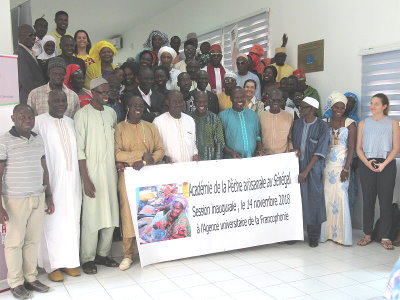 The highlight of the month of November was the launch of the Small-Scale Fisheries Academy in Senegal. Supported by a multi-stakeholder organising committee formed upon the suggestion of Mundus maris the inaugural session was kindly hosted by the Agence Universitaire de la Francophonie (AUF) on the campus of Cheikh Anta Diop University in Dakar on 14 November 2018. Some 62 personalities from different walks of life met in intense exchange and debates for a full day.
The highlight of the month of November was the launch of the Small-Scale Fisheries Academy in Senegal. Supported by a multi-stakeholder organising committee formed upon the suggestion of Mundus maris the inaugural session was kindly hosted by the Agence Universitaire de la Francophonie (AUF) on the campus of Cheikh Anta Diop University in Dakar on 14 November 2018. Some 62 personalities from different walks of life met in intense exchange and debates for a full day.
Perspectives on Earth System Governance Conference, 5-8 November 2018
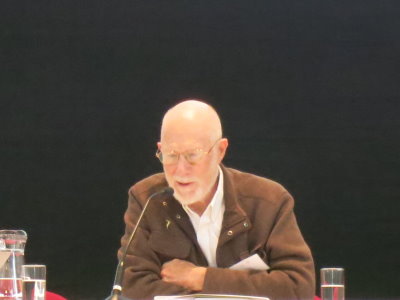 The Earth System Governance Community brings together hundreds of scholars from all over the world to reflect on their vast names-giving theme from a wide variety of angles. Most studies are, indeed, at much smaller scales, including analyses of local issues. But theorising on environmental governance by Oran R. Young in his talk on a institutional diagnostic approach to earth system governance and the exploration of tipping points in the climate system by Ilona Otto and PIK co-workers were among the many thought provoking talks at larger system scales.
The Earth System Governance Community brings together hundreds of scholars from all over the world to reflect on their vast names-giving theme from a wide variety of angles. Most studies are, indeed, at much smaller scales, including analyses of local issues. But theorising on environmental governance by Oran R. Young in his talk on a institutional diagnostic approach to earth system governance and the exploration of tipping points in the climate system by Ilona Otto and PIK co-workers were among the many thought provoking talks at larger system scales.
Bruxelles Environnement Invited to a Circular Economy Day
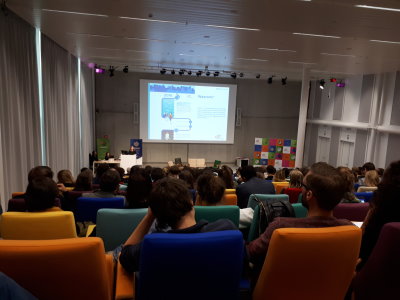 On October 24, 2018, the "Annual Meeting beCircular" took place in Brussels, Av. Port 86C, in the Tour et Taxis building complex. Some 400 people participated, representatives of interested organisations or individuals. Mundus maris was represented by Marianne Braun.
On October 24, 2018, the "Annual Meeting beCircular" took place in Brussels, Av. Port 86C, in the Tour et Taxis building complex. Some 400 people participated, representatives of interested organisations or individuals. Mundus maris was represented by Marianne Braun.
The Brussels Community is owner of an impressive building, modern architecture, natural and sustainable building materials, very bright, which is entirely dedicated to the eco-circular economy. There are many "start ups" who have rented space to develop a new idea.
3rd World Small-Scale Fisheries Congress, Chiang Mai, 20-24 October
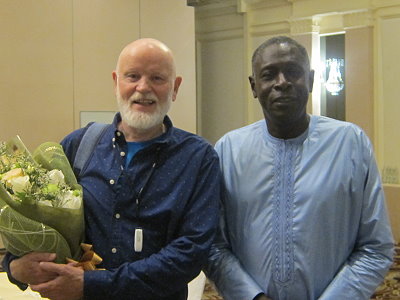 This was biggest of a series of world congresses on small-scale fisheries with more than 350 participants from 55 countries. Ratana Chuenpagdee, Project Director of the global research network "Too Big To Ignore" and her staff and local organisers pulled off a highly inspiring and productive conference. Mundus maris made its contribution through the active participation of Aliou Sall, our Vice-President from Senegal. To the right Aliou with Svein Jentoft who was honoured for his outstanding contributions to small-scale fisheries. Congratulations Svein!
This was biggest of a series of world congresses on small-scale fisheries with more than 350 participants from 55 countries. Ratana Chuenpagdee, Project Director of the global research network "Too Big To Ignore" and her staff and local organisers pulled off a highly inspiring and productive conference. Mundus maris made its contribution through the active participation of Aliou Sall, our Vice-President from Senegal. To the right Aliou with Svein Jentoft who was honoured for his outstanding contributions to small-scale fisheries. Congratulations Svein!
Picture of the month - October 2018
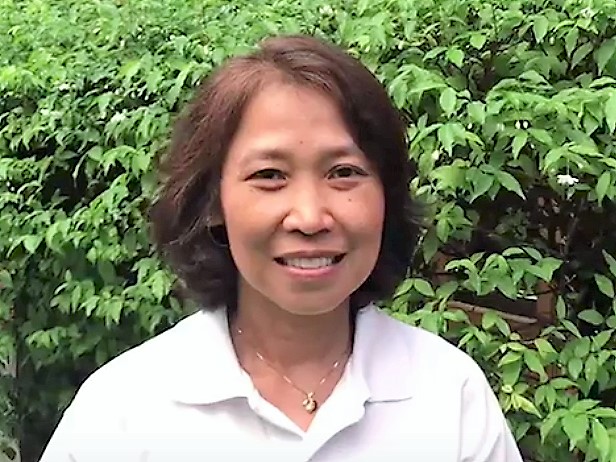 More than 350 participants from 55 countries made the 3rd World Small-Scale Fisheries Congress in Chiang Mai, Thailand, the biggest of its kind. Dr. Ratana Chuenpagdee, Project Director of the global research collaboration "Too Big To Ignore" headquartered in Canada welcomed participants (click on the picture to see the video).
More than 350 participants from 55 countries made the 3rd World Small-Scale Fisheries Congress in Chiang Mai, Thailand, the biggest of its kind. Dr. Ratana Chuenpagdee, Project Director of the global research collaboration "Too Big To Ignore" headquartered in Canada welcomed participants (click on the picture to see the video).
Enjoy delicious and sustainable seafood with Mundus maris workshops
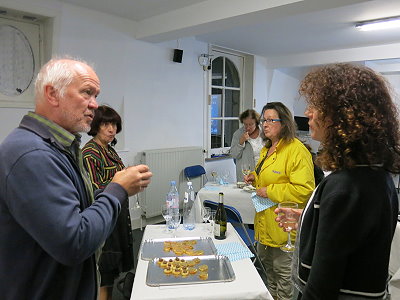 The Good Food Weekend is a must in the Brussels annual event agenda. As part of the official programme, Mundus maris offered workshops with fish tastings on Friday, 19 and Saturday, 20 October 2018 in English and French respectively to help participants navigate the waters towards delicious and also sustainable fish and seafood. Our workshops were supported by wholesaler Pintafish and Bia Mara, the sustainable fish 'n chips restaurant.
The Good Food Weekend is a must in the Brussels annual event agenda. As part of the official programme, Mundus maris offered workshops with fish tastings on Friday, 19 and Saturday, 20 October 2018 in English and French respectively to help participants navigate the waters towards delicious and also sustainable fish and seafood. Our workshops were supported by wholesaler Pintafish and Bia Mara, the sustainable fish 'n chips restaurant.
Mundus maris attracts interest at the University of Calabar
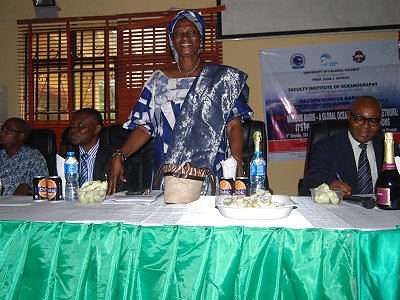 Participation of students from Calabar University, Nigeria, in the Mundus maris Awards to celebrate World Oceans Day this year triggered a spike of interest also among researchers and faculty at the university. That offered a welcome opportunity to our Vice President, Prof. Stella Williams, and her colleague in Calabar, Prof. Francis E. Asuquo, to explore what to do together about promoting ocean literacy and engagement for conservation and sustainable use. That resulted in a one-day Seminar on Ocean Conservation and Sustainability with some 230 participants.
Participation of students from Calabar University, Nigeria, in the Mundus maris Awards to celebrate World Oceans Day this year triggered a spike of interest also among researchers and faculty at the university. That offered a welcome opportunity to our Vice President, Prof. Stella Williams, and her colleague in Calabar, Prof. Francis E. Asuquo, to explore what to do together about promoting ocean literacy and engagement for conservation and sustainable use. That resulted in a one-day Seminar on Ocean Conservation and Sustainability with some 230 participants.
Picture of the month - September 2018
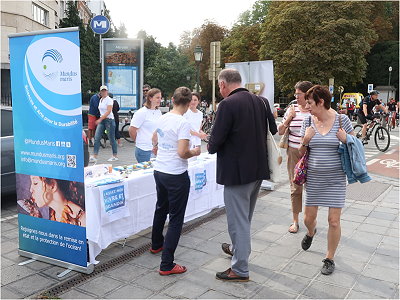 The Sunday without cars is a fixed appointment in Brussel's agenda and much loved by the inhabitants who take to the street in droves on byke, roller scates and foot. The Mundus maris team had a great field day talking to a cross-section of people about how to reduce the acidification of the ocean from excess traffic using fossil fuels and other opportunities to connect more sustainably to the one Blue Planet we have. Lots of people suggested that cars should be banned at least once a month, not only once per year. Is the administration hearing the message of the citizens?
The Sunday without cars is a fixed appointment in Brussel's agenda and much loved by the inhabitants who take to the street in droves on byke, roller scates and foot. The Mundus maris team had a great field day talking to a cross-section of people about how to reduce the acidification of the ocean from excess traffic using fossil fuels and other opportunities to connect more sustainably to the one Blue Planet we have. Lots of people suggested that cars should be banned at least once a month, not only once per year. Is the administration hearing the message of the citizens?
Young Marine Researchers' conference sets new record
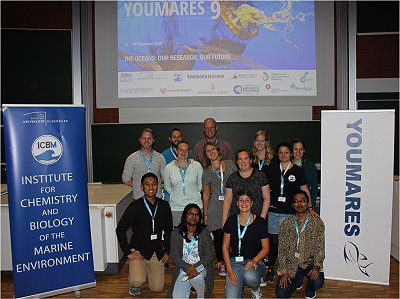 Young university, young marine researchers. From 11 to 14 September 2018 the Carl von Ossietzky University in Oldenburg was a most welcoming host for the ninth and so far biggest gathering in the series of self organised conferences of YOUMARES. With over 250 participants from some 35 countries, 109 talks, 31 posters, the organising team led by Dr Viola Liebig, member of the management of the German Society for Marine Research (DGM), and Dr Simon Jungblut of the Alfred Wegener Institute for Polar Research pulled off another memorable gathering. Mundus maris was a proud supporter.
Young university, young marine researchers. From 11 to 14 September 2018 the Carl von Ossietzky University in Oldenburg was a most welcoming host for the ninth and so far biggest gathering in the series of self organised conferences of YOUMARES. With over 250 participants from some 35 countries, 109 talks, 31 posters, the organising team led by Dr Viola Liebig, member of the management of the German Society for Marine Research (DGM), and Dr Simon Jungblut of the Alfred Wegener Institute for Polar Research pulled off another memorable gathering. Mundus maris was a proud supporter.
A wonderful domino effect is on the move in Argentina
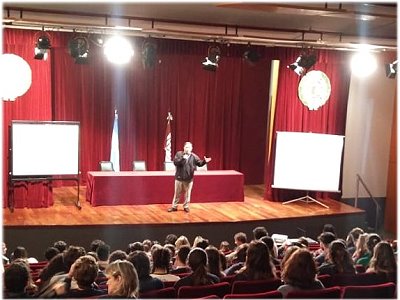 Last Friday, 7 September 2018, the University Belgrano, partner of Mundus maris, organised a set of activities within the framework of the Argentinean National Week of Science and Technology. One of these activities consisted of a role play where four stakeholders had a conflict over pollution of plastic waste as used in all restaurants from a fast food chain. The role play was interpreted by each of two groups of around 45 high school students, who discussed the social and economical aspects of a possible reduction of plastic contamination. The schools involved were Escuela Argentina General Belgrano and Colegio Lincoln and Instituto Huergo.
Last Friday, 7 September 2018, the University Belgrano, partner of Mundus maris, organised a set of activities within the framework of the Argentinean National Week of Science and Technology. One of these activities consisted of a role play where four stakeholders had a conflict over pollution of plastic waste as used in all restaurants from a fast food chain. The role play was interpreted by each of two groups of around 45 high school students, who discussed the social and economical aspects of a possible reduction of plastic contamination. The schools involved were Escuela Argentina General Belgrano and Colegio Lincoln and Instituto Huergo.
European Parliament on marine plastic – 5 Sept. 2018
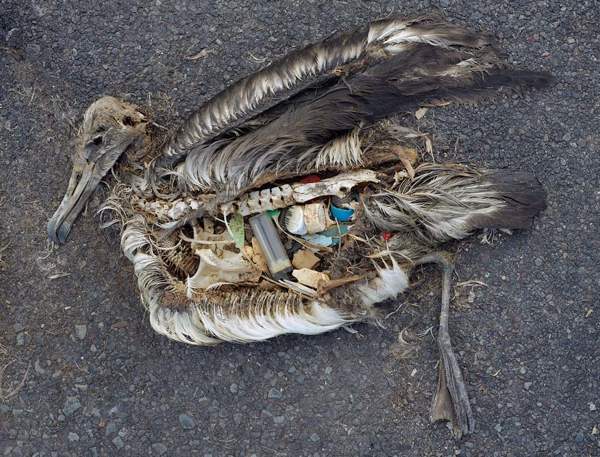 Plastic pollution in the ocean from lost fishing nets and massive amounts of household litter, such as bottles, cups, straws, bags and much else reaching the ocean mostly through rivers has hit public consciousness. Everybody has seen the pictures of birds, turtles and even marine mammals miserably starved to death with their stomachs full of plastic.
Plastic pollution in the ocean from lost fishing nets and massive amounts of household litter, such as bottles, cups, straws, bags and much else reaching the ocean mostly through rivers has hit public consciousness. Everybody has seen the pictures of birds, turtles and even marine mammals miserably starved to death with their stomachs full of plastic.
The conference on "The effect of marine litter on fisheries and oceans" was organised by the European Parliament Intergroup on “Climate Change, Biodiversity and Sustainable Development” at the EP in Brussels on 5 September 2018 to explore and discuss the new European Commission proposals on ways to tackle marine litter.






